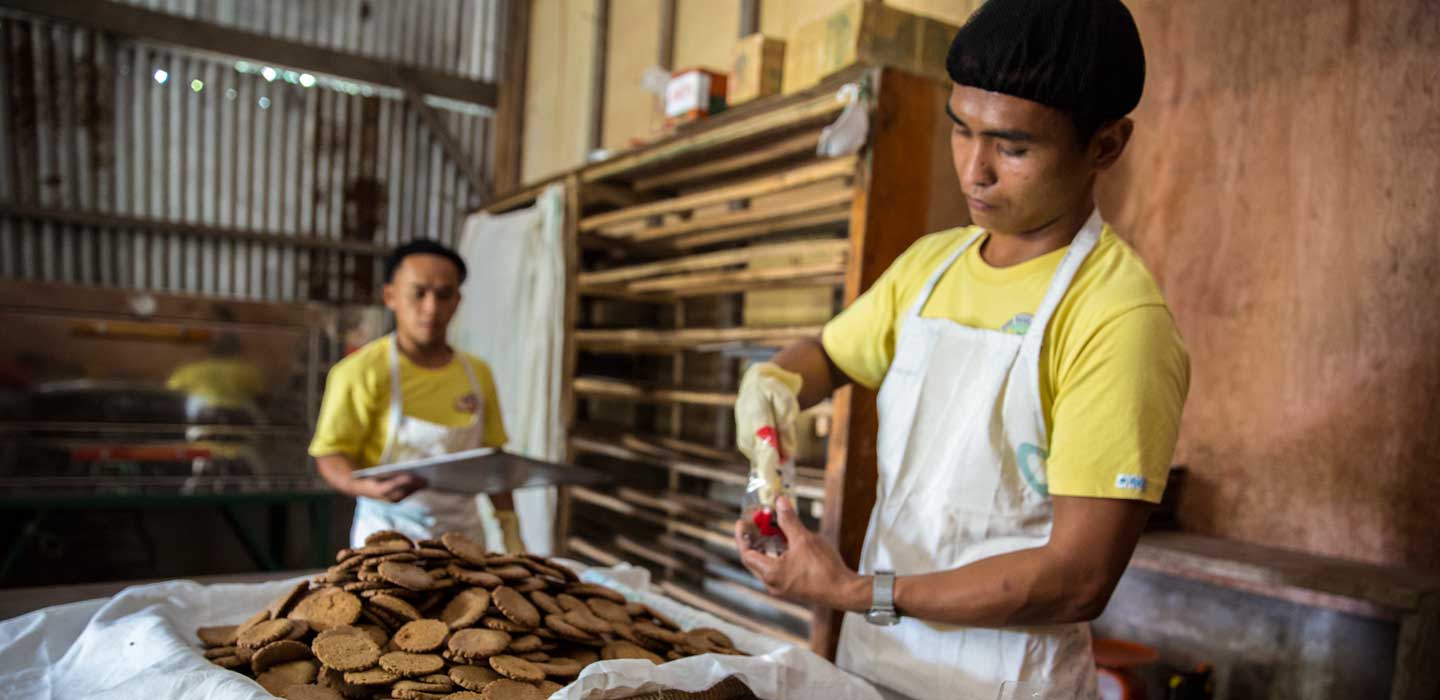IFAD and the Philippines to invest $95.1 million in agribusiness development to increase incomes and reduce rural poverty
IFAD Asset Request Portlet
Asset Publisher
IFAD and the Philippines to invest $95.1 million in agribusiness development to increase incomes and reduce rural poverty
14 May 2019
Philippines - Rural Microenterprise Promotion Programme (RuMEPP) - June 2017
Rome, 14 May 2019 - The International Fund for Agricultural Development (IFAD) has signed a financing agreement with the Government of the Philippines to reduce poverty and increase incomes for 469,200 rural people in 20 of the poorest provinces in Mindanao and Eastern Visayas regions.
The agreement was signed by Gilbert F. Houngbo, President of IFAD, and Carlos G. Dominguez, Secretary of Finance, the Philippines by correspondence last week.
The total cost of the Rural Agro-enterprise Partnerships for Inclusive Development and Growth (RAPID) project is US$95.1 million of which IFAD is providing a $62.9 million loan and a $2.5 million grant. The project will be cofinanced by the Government of the Philippines ($10.8 million), domestic financial institutions ($12.4 million), local private sector partners ($2.8 million), and the beneficiaries themselves ($2.1 million). The remaining $1.6 million will be determined at a later date.
Though the Philippines is a lower middle-income country, more than 20 percent of the population lives below the poverty line, with a higher incidence in rural areas (35 per cent) where agriculture is the main source of income.
Rural areas lag in economic growth and have higher rates of underemployment. This is partly due to farmers’ lack of access to productive capital, to knowledge and technology, and to limited market access. Rural poor people also have few options for generating off-farm income and lack access to affordable financial services.
The overarching goal of the project is to increase smallholder farmers’ incomes and generate employment opportunities in the selected provinces. The project aims to do this by creating the conditions for the sustainable development of micro and small enterprises in specific agricultural commodity chains (cocoa, coffee, processed fruit and nuts, and coconut).
“To boost the rural economy and reduce poverty in rural areas, it is important that agribusiness enterprises drive a process of inclusive rural transformation, creating market opportunities for smallholder farmers as well as jobs for other disadvantaged rural people,” said Alessandro Marini, IFAD Country Director for the Philippines.
“The project will support the development of inclusive, sustainable and resilient commodity chains, providing farmers and agribusinesses with a range of services, including access to finance and business and technical advisory services, as well as key economic infrastructure such as farm-to-market roads,” he added.
Since 1978, IFAD has financed 16 projects in the Philippines, for a total investment of $877 million, of which IFAD has provided $321 million. These projects have directly impacted more than 1.8 million rural households.
Read more information on IFAD’s work in the Philippines.
Press release No.: IFAD/20/2019
IFAD has invested in rural people for 40 years, empowering them to reduce poverty, increase food security, improve nutrition and strengthen resilience. Since 1978, we have provided about US$20.4 billion in grants and low-interest loans to projects that have reached some 480 million people. IFAD is an international financial institution and a specialized United Nations agency based in Rome – the UN’s food and agriculture hub.
